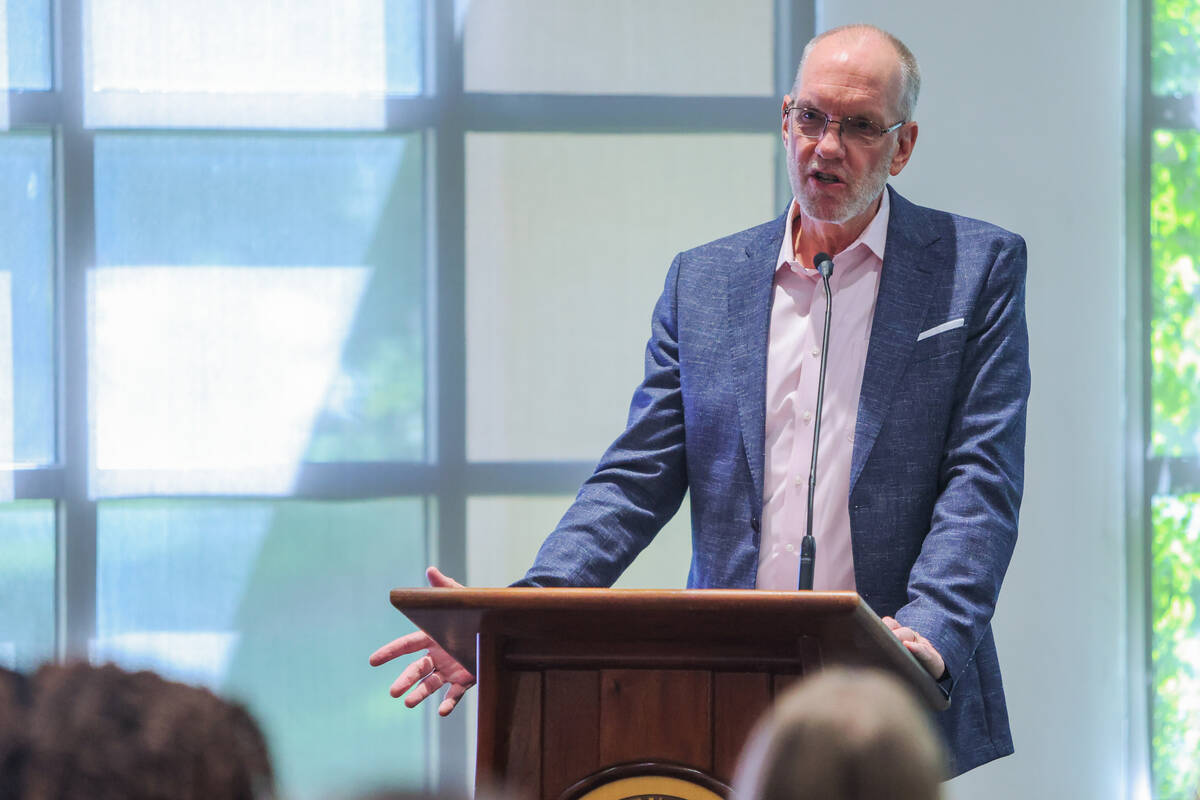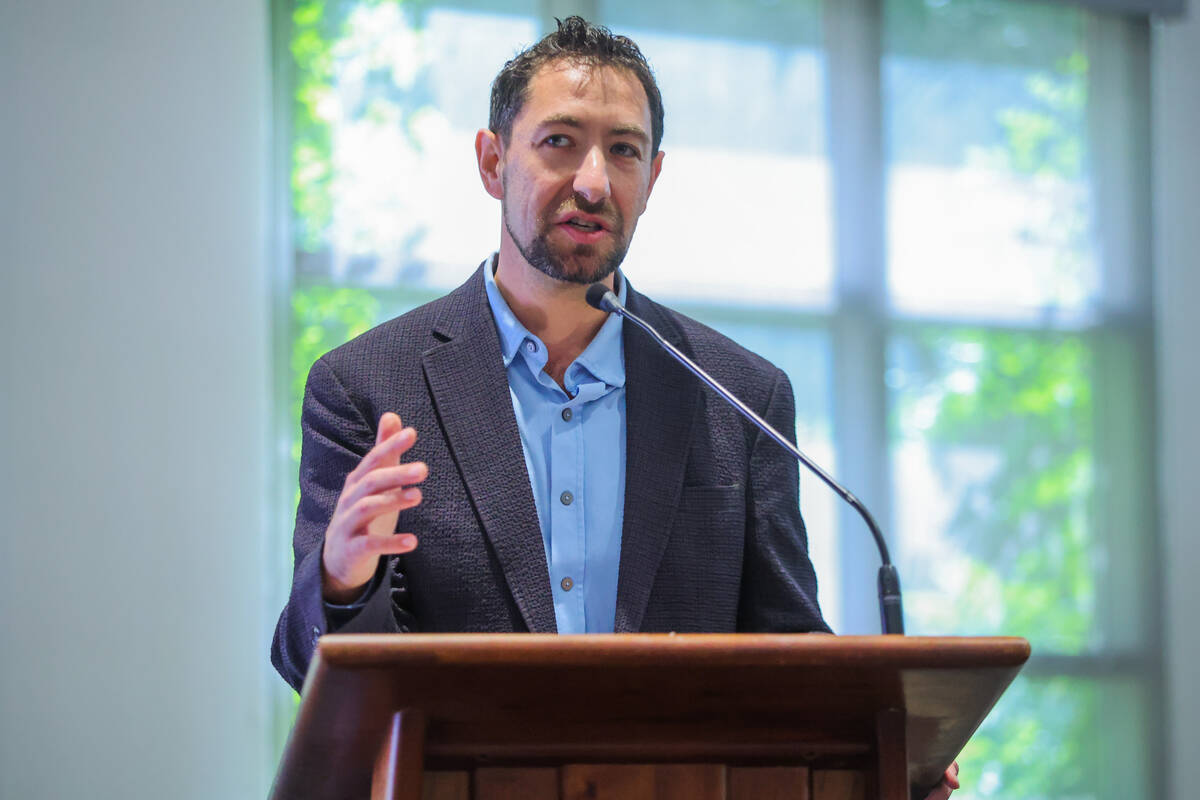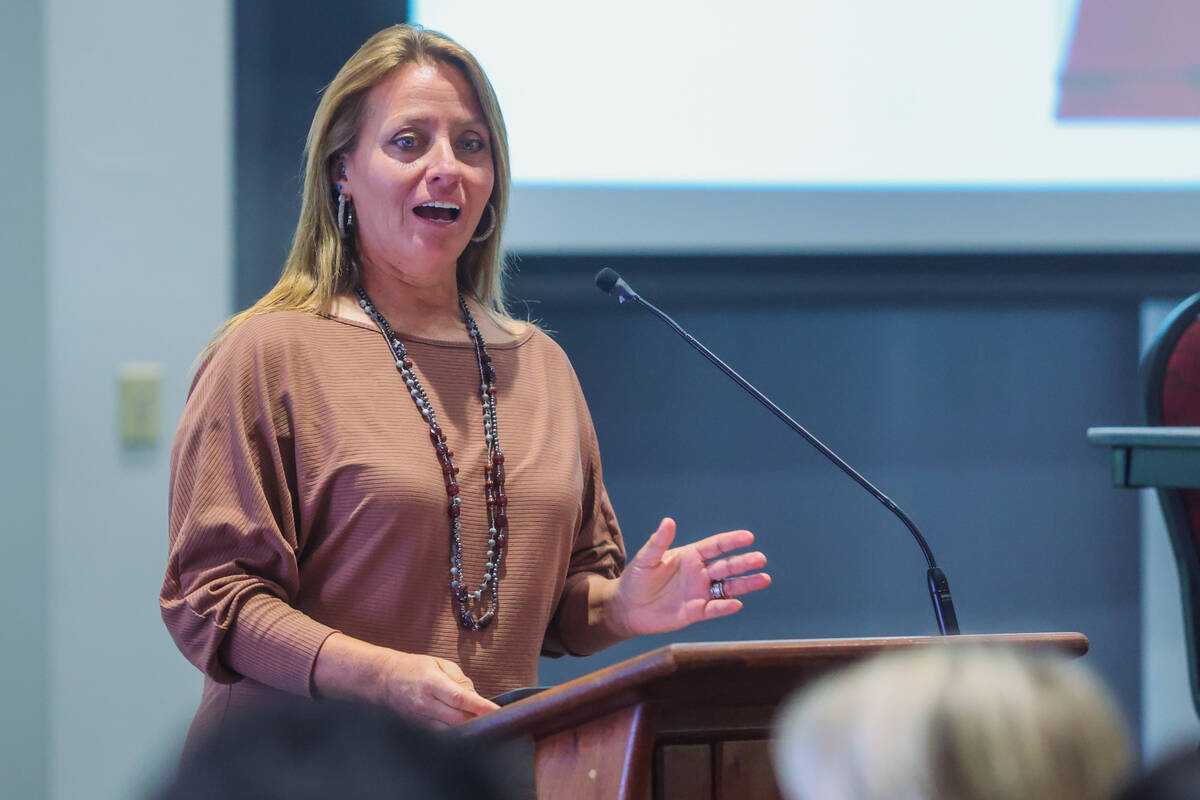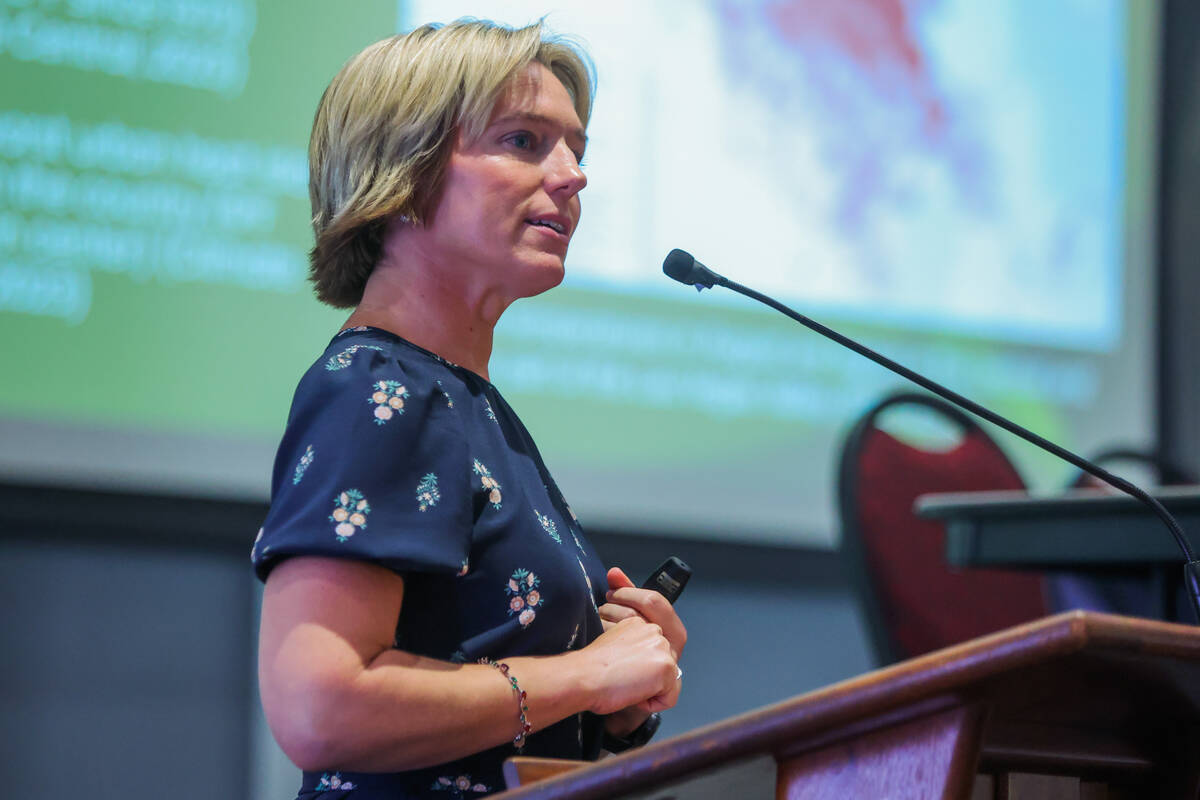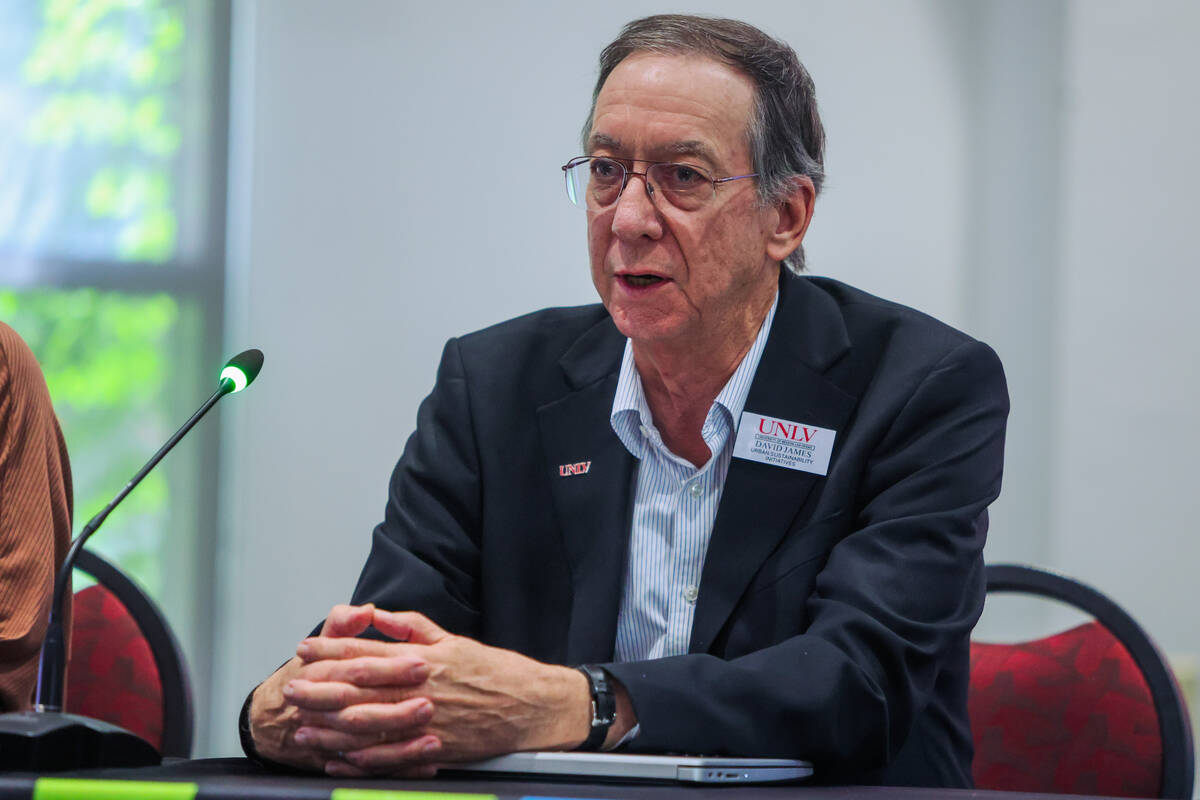‘There’s no Planet B’: UNLV first Nevada university to launch climate change plan
UNLV became the first school in the Nevada System of Higher Education to launch a plan to address climate change, unveiling it at a kickoff event on Friday afternoon.
Known as the Rebel Climate Action Plan (CAP), the document is a roadmap for how the school will meet its goal of slashing its greenhouse gas emissions 50 percent by 2030 and becoming net zero by the university’s 100th birthday in 2057. Net zero refers to a state where the carbon dioxide UNLV is putting into the atmosphere is offset with the amount removed, thus not contributing to warming.
The university’s announcement comes at the end of a record Las Vegas summer — one with 100 days of triple-digit temperatures that have killed at least 224 people so far. With 62 recommendations, students, faculty and administration will minimize the institution’s role in elevating the heat in a city that climate scientists consider to be among the country’s fastest-warming.
“The planet is going to keep going around the sun,” said Tara Pike, the campus sustainability manager who served on the plan’s four-person core committee. “It’s really about saving the humans and, specifically, the kids, right?”
The plan is not yet available to the public, but will be next week, a university spokeswoman said. Ahead of its release, the Las Vegas Review-Journal obtained a copy under the condition that it would not be published in full.
A commuter school considers emissions
Largely considered a commuter school, the bulk of UNLV’s greenhouse gas emissions come from the electricity needed to run its buildings, transportation to and from school as well as air travel.
Musa Pam, UNLV’s associate vice president of facilities management, said the school worked with consultants to establish a baseline for its emissions, based on data sources such as utility bills and enrollment numbers.
Part of the plan talks about conducting an assessment of building energy use. It describes collecting better data related to energy, water and waste, in addition to making facility energy use data more readily available on UNLV websites.
The university will create a sustainability office with a full-time sustainability officer, hire a zero waste manager and focus on attracting faculty that have expertise in climate change.
Students may soon be required to take a sustainability course to graduate, though that could require state approval.
Students and faculty have wanted a comprehensive response to climate change for many years, Pam said. The UNLV community was engaged in the plan development process, with more than 400 survey responses and 140 comments collected at public meetings, he said.
“The saying is, it takes a village to raise a child,” Pam said, “And this child — this plan — has taken a village, indeed.”
EV chargers, solar panels and much more
There are a number of actions laid out in the plan that administrators will take to help reduce the university’s emissions overall. Pam said interim reports detailing progress will come out once a year.
The university will explore power purchase agreements to transition entirely to renewable sources of energy, working with casinos like MGM Grand that have powered their buildings by transmitting energy from solar farms in rural Nevada. Since 2013, it has increased the amount of solar panels on campus, and administrators intend to install solar-covered walkways in the sunniest parts of campus.
It’ll double the amount of electric vehicle chargers on campus for a total of 48 and work with officials to expand bus routes to university buildings, all in an attempt to discourage commuters from using gas-powered cars.
“Good planets are hard to find, and there’s no Planet B,” professor David James said at the event. “This is it, so we need to act in that manner.”
Though student attendance was sparse at the launch, some who were there found hope in the announcement.
Erica Mann, an 18-year-old first-year student with an interest in environmental science, said she was thrilled to see her university taking accountability for its role in climate change.
A Las Vegas native, Mann is no stranger to how extreme heat can imperil people in the community.
“The plan sets an example for the city,” said Mann, who intends on joining the school’s working group that will focus on implementation. “And it’s so important for students to get involved.”
Contact Alan Halaly at ahalaly@reviewjournal.com. Follow @AlanHalaly on X.



